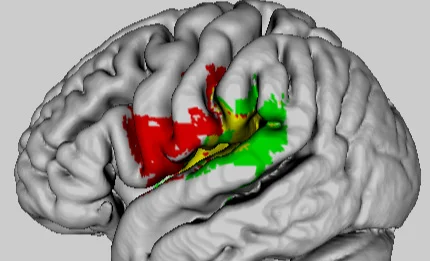Georgetown University’s Neuroscience of Language training program is Seeking 2 Postdoctoral fellows July 2024 to June 2025!
Georgetown University’s new Neuroscience of Language T32 training program is seeking two postdoctoral fellows to start in Summer 2025. The Neuroscience of Language program provides training in the brain basis of language, as well as sensory, motor, and cognitive systems as they pertain to language and communication. Georgetown has a number of faculty focused on Neuroscience of Language research, ranging from basic work on auditory or language processing (spoken, signed, and written language) to clinical trials in adults and children with brain injuries affecting language. Interactions with Georgetown’s highly regarded Linguistics Department, as well as Children’s National Hospital and MedStar National Rehabilitation Hospital, provide us with access to additional faculty and research populations and further enrich the training environment.
Individuals with doctoral degrees from any field related to Neuroscience of Language (Neuroscience, Cognitive Science, Linguistics, Psychology, Communication Disorders, etc.) are encouraged to apply. Fellows will be supported for two years and will develop an individualized training plan to provide expertise across disciplines important to Neuroscience of Language research. Fellows will take coursework as needed and will participate in a regular journal club and seminar series, clinical experiences, community engagement activities, and professional development activities, in addition to conducting research in the neuroscience of language. The overall goal of the program is to develop well-rounded scientists who have a broad perspective on basic and clinical Neuroscience of Language.
Fellows will work with one or more of the following investigators: Drs. Thomas Coate, Guinevere Eden, Rhonda Friedman, William Gaillard, Anna Greenwald, Xiong Jiang, Elissa Newport, Josef Rauschecker, Max Riesenhuber, Ella Striem-Amit, Ted Supalla, Peter Turkeltaub, and Michael Ullman. Collaborations among our faculty are common and a strength of our program.
Appointments are funded at standard NIH NRSA stipend rates, with an initial one-year term to be renewed for an additional year if fellows meet the program requirements.
U.S. citizens or permanent residents who currently hold a doctoral degree or will have met all doctoral program requirements before July 1, 2022 are eligible to apply. Individuals from groups recognized to be underrepresented in the sciences are encouraged to apply.
Please submit the following application materials via the application form.
· CV
· Personal statement describing career goals, prior research, goals for postdoctoral training, and lab(s) of interest (3 pages)
· Names and contact information for three references
· Writing sample (manuscript or dissertation)
Contact Dr. Peter Turkeltaub (peter.turkeltaub@georgetown.edu) with any questions.
Seeking 2025 Undergraduate Research Assistants
The Cognitive Recovery Lab is directed by Dr. Peter Turkeltaub, MD, PhD, a cognitive neurologist and neuroscientist. The mission of the lab is to improve the lives of people with cognitive and language difficulties by expanding our understanding of (1) how the brain performs reading, language, and cognitive functions, (2) how these brain systems change in the face of injury or dysfunction, and (3) how we can improve recovery. Our current research uses MRI and behavioral assessments to examine the neural mechanisms underlying reading and language recovery in individuals with stroke.
Interested in gaining research experience?
We are interested in recruiting motivated student research assistants to assist with execution, management and organization of our current research study, ReadMap (Reading in stroke alexia and typical aging).
We’re looking for volunteers who possess…
High personal motivation to learn new software/research methods, strong self-management skills, thorough attention to detail, and an eagerness to participate in a range of tasks under the guidance of research staff.
Example tasks to become involved with as an undergraduate:
● Editing, transcribing, and coding patient videos for analyses,
including using basic IPA (training provided)
● Entering and verifying experimental data for our research staff
● Transcribing narratives to analyze the speech of participants after a stroke
● Working with imaging data and MRI analyses
Qualifications:
Interest in linguistics and/or neuroscience and brain injury following stroke. We look for commitment of 10 hours/week during the academic year and/or 10-20 hours/week in the summer. Two-year commitment is preferred.
Interested? Contact Us:
Please send us a CV, unofficial transcript, and cover letter detailing your interests/work experience/availability to crlab@georgetown.edu. If you have any questions, please email our Research Specialist, Devna Mathur (dm1771@georgetown.edu).
Other Questions? Contact Us
If you are interested in working with us, or have questions about available positions, message us your questions!
We look forward to hearing from you!
